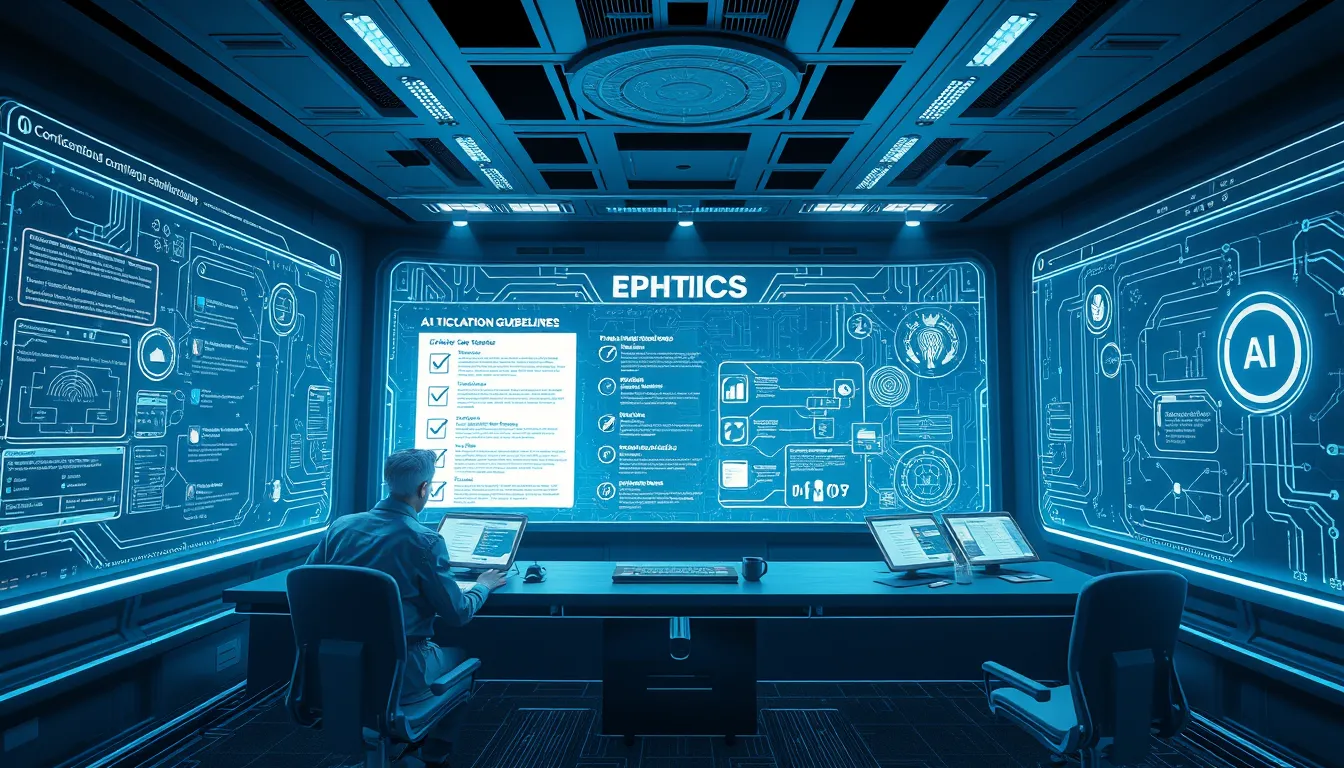Now Reading: Essential Ethics in Automation: Curbing Bias in AI Systems
-
01
Essential Ethics in Automation: Curbing Bias in AI Systems
Essential Ethics in Automation: Curbing Bias in AI Systems

Essential Ethics in Automation: Curbing Bias in AI Systems
Introduction
In an era where artificial intelligence transforms industries globally, the importance of integrating ethical principles in automation is more crucial than ever. Focusing on key issues such as Ethics in Automation: Mitigating Bias in AI Systems, this article sheds light on addressing inherent biases in AI while ensuring robust compliance. As automation becomes pervasive, understanding the ethical landscape not only aids businesses in remaining innovative but also promotes fair, accountable, and transparent AI practices.
The Need for Ethical AI and Regulatory Frameworks
The rapid evolution of AI technologies has brought about significant opportunities along with challenges. With primary concerns like Bias in AI and AI compliance, regulators and technology leaders alike emphasize the necessity of ethical AI. Globally, several organizations and governmental bodies have stepped up to define AI regulatory frameworks that ensure AI transparency and ethical alignment. For instance, the European Commission’s official site, accessible at https://ec.europa.eu/info/index_en, provides guidelines which help steer AI development towards fairness and accountability.
Key Challenges in Ethical AI
Several factors contribute to bias in AI systems. As technologies evolve, biases stemming from data sampling, algorithmic design, or even training methods can skew results in automated decision-making. Common challenges include:
- Incomplete or biased data sets that favor particular demographics.
- Algorithmic opacity that makes it hard to identify fault lines in decision systems.
- Insufficient regulatory oversight, which undermines public trust in automated systems.
By addressing these issues early in the development lifecycle, organizations can mitigate bias significantly.
How to Mitigate Bias in AI Systems
Understanding how to mitigate bias in AI systems is a key long-tail query that drives current research and corporate practices. The following strategies have proven effective:
- Involve multidisciplinary teams: Bringing together data scientists, ethicists, and legal experts can help identify potential bias throughout the AI development process.
- Employ thorough data audits: Regularly review and adjust data sets to minimize inherent biases and inaccuracies.
- Increase algorithmic transparency: Clearly document the decision-making process, ensuring that each step is open for review and validation.
- Leverage continuous monitoring: Implement systems for ongoing supervision to detect and correct biases as they emerge.
Each of these steps reinforces safe and ethical AI practices, contributing to the integrity of automated systems.
Ensuring Compliance in AI Development
Ensuring compliance in AI development goes beyond legal mandates—it is an ethical necessity. Organizations must incorporate compliance checks throughout the lifecycle of AI projects. This involves:
- Adhering to established regulatory frameworks that promote ethical AI and transparency.
- Utilizing internal audits and third-party assessments to verify compliance with evolving standards.
- Ensuring that the mechanics of data sourcing and algorithm design are not only legally robust but ethically sound.
For further guidance on compliance, technology firms often refer to detailed frameworks available through trusted sources such as the guidelines provided by the Organization for Economic Cooperation and Development (OECD).
The Importance of Independent Oversight and Global Standards
As AI permeates every sector, independent oversight bodies play a critical role in maintaining system integrity. Establishing independent review panels can:
- Provide unbiased assessments of AI systems, ensuring adherence to both internal and external ethical standards.
- Conduct regular audits to check for potential bias and manipulations.
- Build public trust by enforcing accountability and transparency in AI processes.
This model of governance ensures that ethical concerns remain central to AI deployment and highlights the significance of global standards that transcend regional boundaries.
Integrating Education, Innovation, and Ethical Practices
Educating developers, data scientists, and business leaders on ethical considerations is essential for sustainable innovation. Training programs and workshops on subjects like AI transparency, AI regulatory frameworks, and ethical AI are playing a vital role in equipping professionals with the skills needed to navigate complex ethical landscapes.
Furthermore, success stories and case studies have shown that companies that invest in ethical AI not only mitigate risks but also enjoy higher levels of trust and credibility among their audiences. For instance, industry pioneers such as OpenAI (visit https://www.openai.com) have set benchmarks by integrating ethical review processes throughout their product cycles.
Conclusion
In conclusion, the integration of ethics in automation is not merely a regulatory checkbox but a foundational aspect of responsible AI development. Addressing issues like bias in AI and ensuring compliance are central to creating systems that are fair, accountable, and transparent. As industries continue to evolve, a balanced approach that unites innovation with ethical oversight will be essential. By understanding how to mitigate bias in AI systems and ensuring compliance in AI development, businesses can build public trust and drive forward a future where technology benefits all sectors of society equitably.
This comprehensive exploration of ethical AI practices underscores that the future of technology lies in merging innovation with ethical governance. As we move forward, prioritizing ethics in automation will empower organizations to build resilient, trustworthy, and socially responsible AI systems.

























